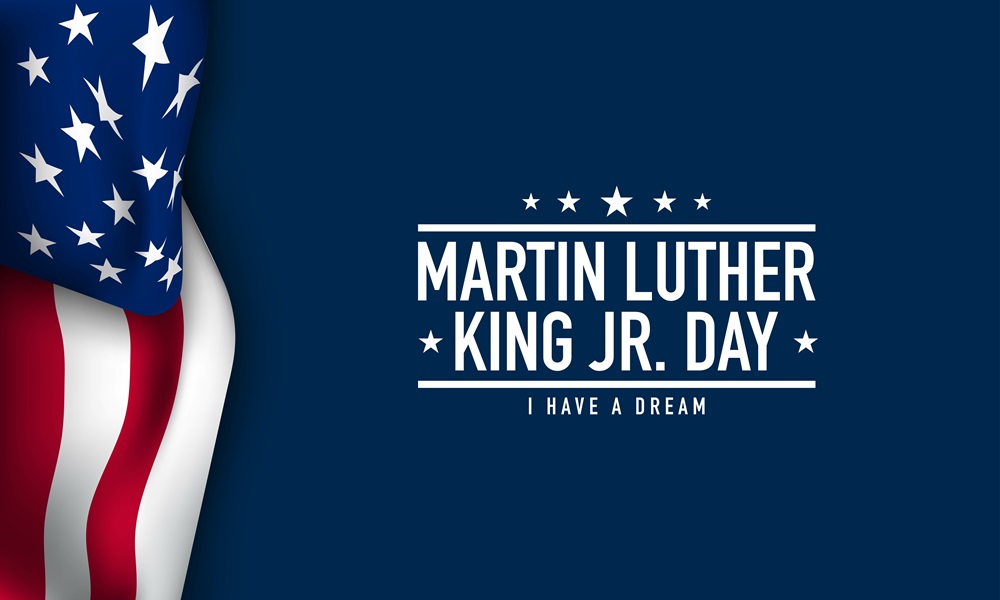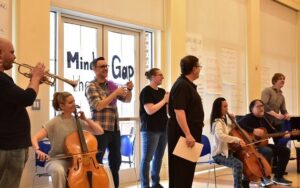Tomorrow is Martin Luther King Jr. Day. Dr. King is an American who leaves a great legacy of triumph in the name of justice and equality in American life. He is also someone whose thought has left an indelible mark on the culture of Braver Angels. King’s political approach was always pointed not merely towards equal rights but towards social reconciliation. Thus he frequently admonished his followers, saying we do “not seek to defeat or humiliate the opponent, but to win his friendship and understanding… The end is redemption and reconciliation.”
Redemption and reconciliation stand as almost alien concepts in our politics today. Recently, footage of comments by President Biden’s science advisor and former director of the National Institute of Health Dr. Francis Collins — who was a lead figure in our COVID-19 response — surfaced and went viral on social media. The footage was from our Braver Angels national convention in Gettysburg this past July, where Collins engaged critics like Wilk Wilkinson and others in conversation about the public health establishment’s response to the pandemic.
Collins’ remarks provoked outrage from throngs of commentators on social media and chastisement from writers in the Wall Street Journal and the National Review. What is interesting about this, however, is that the statements of Collins that sparked this response were remarks of contrition:
“As a guy living inside the Beltway, feeling this sense of crisis, trying to decide what to do in some situation room in the White House…we weren’t really thinking about what that would mean to Wilk and his family in Minnesota a thousand miles away from where the virus was hitting so hard. We weren’t really considering the consequences in communities that were not New York City or some other big city…if you’re a public health person and you’re trying to make a decision you have this very narrow view of what the right decision is, and that is something that will save a life. Doesn’t matter what else happens…you attach zero value to whether this actually totally disrupts people’s lives, ruins the economy, and has many kids kept out of school in a way that they never quite recover from.”
It is rare that a powerful public official admits meaningful mistakes. Francis Collins did so and did so voluntarily. Collins’ engagement with Braver Angels, including many of us who are critical of the institutions he represents, has been gracious. For this, I express my sincere thanks.
A part of me therefore bemoans that this rare moment of public vulnerability has been met with so much unforgiveness by much of the commentariat and public.
Yet it is vital to remember that, while many Americans certainly feel that extended lockdowns were justified given the stakes, many critics of the establishment felt that they themselves stood unforgiven for daring to share what in retrospect may look to others like reasonable concerns about the policy of lockdowns and a culture of censorship that punished dissenters for stepping out of line. One humble statement from Dr. Collins does not undo that feeling.
But the conversation continues. On her most recent two-part installment of A Braver Way,Mónica Guzmán brings together Collins and Travis Tripodi, a Braver Angels grassroots volunteer and adamant critic of the public health establishment, for further debate on our COVID response. Collins and Tripodi challenge each other on the issues, but they also challenge one another to push the bounds of empathy and respect. The result is a discourse that sets a new tone for a deeply difficult conversation. (You can listen to or read the transcripts for Part 1 and Part 2 of these episodes on our website.)
Braver Angels is committed to fostering a fair-minded culture of conversation around what went right and wrong in our COVID response, as well as any deep questions that live at the fault lines of our politics. We are committed to good faith, understanding the need for truth, context and accountability, while striving always for reconciliation in the spirit of Dr. King.
“The aftermath of nonviolence is the creation of the beloved community,” a society in which we have confronted our shortcomings, reckoned with truth, and have made peace with one another. That process is a painful one. But let its goal be the reconciled America that Martin Luther King Jr. hoped for, and a culture of redemption available to all.




